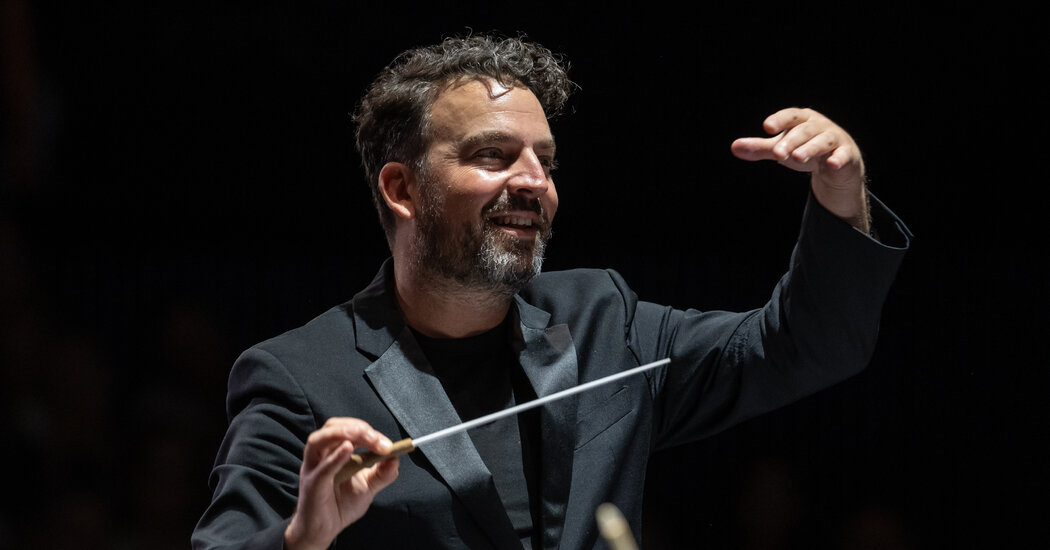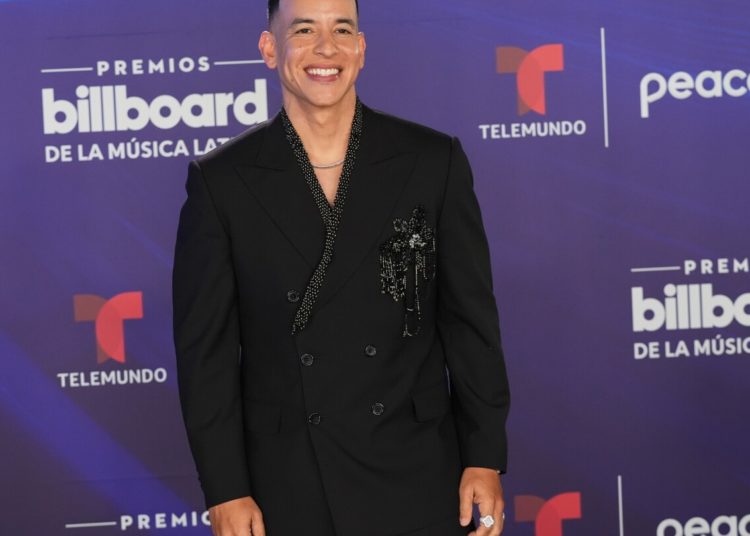The Houston Grand Opera announced on Thursday that James Gaffigan, a conductor with extensive experience with orchestras and opera houses in Europe, would be its next music director.
Gaffigan, who is 46 and from New York City, will become the rare American-born conductor to lead a major American opera house, with his appointment coming after more than a decade of living and conducting in Europe. “I always knew that coming back to the U.S. was the plan,” Gaffigan said in an interview from Bonn, Germany. “It was just a question of where. Houston Grand Opera was the first time that all the boxes were really checked.”
Gaffigan will begin a five-year appointment in the 2027-28 season, serving as music director designate next year. He replaces Patrick Summers, the company’s longtime artistic and music director, who announced in 2024 that he was stepping down. Summers, also born in the United States, joined the company in 2011.
Khori Dastoor, the general director and chief executive of the Houston company, said that the search committee had not set out to hire an American. But, she added, there has been “a Eurocentric approach to music, to opera,” in the United States.
In Houston, “we have been making the case for another point of view,” she said. “I am very proud to be the company that says, We have homegrown expertise here.”
Gaffigan said he saw Houston Grand Opera as a “beacon of light.”
“I see it as the only truly healthy opera company in America,” he said. “Not just financially but artistically. There are things that have to be built upon. But I am extremely lucky that I am walking into a company with a solid foundation.”
Since 2023, Gaffigan has been the general music director at the Komische Oper Berlin, a position he will hold till 2027. For four seasons, until August 2025, he served as music director at the Palau de les Arts Reina Sofía in Valencia, Spain.
Gaffigan has longstanding ties to Houston. He studied conducting at the Shepherd School of Music at Rice University and first conducted at the Houston Grand Opera in 2011, with a production of Mozart’s “The Marriage of Figaro.” This week, he conducts Gershwin’s “Porgy and Bess” there.
He grew up on Staten Island and was a student at the Fiorello H. LaGuardia High School of Music & Art and Performing Arts near Lincoln Center. “It was a very long commute, it was insane,” he said, recalling how he had to take a ferry to the subway to get to school. As a LaGuardia student, he got free tickets to the Metropolitan Opera. He attended the New England Conservatory of Music before going to Rice.
Houston has a tradition of highlighting living and repertoire composers. Gaffigan and Dastoor said they would continue that as a way of expanding the appeal of opera to new audiences.
“How we convince people who have never been to an opera that opera is alive and well in America?” Dastoor said. “We share a vision of what opera in American can be and what that requires in terms of building a modern audience. James has, of course, performed at the most elite organizations in the world. But he also speaks to a new generation.”
For Gaffigan, that might mean programming Wagner — he is a known Wagnerite — but also “doing a musical once in a while.”
“There’s nothing wrong with a high-quality musical — it belongs in the repertoire,” he said. “‘Sweeney Todd’ or ‘Oklahoma!’ or ‘The Sound of Music.’”
“Gershwin is as good a composer as Schubert or Wagner. A great Rodgers and Hammerstein musical is as great as ‘Die Walküre.’ It’s just different,” he said.
Gaffigan said the paucity of American leaders of American opera companies was one reason he had always wanted to return. “As an American, I think I owe it to my country to have my position there,” he said. “The U.S. has been so good to me in so many ways. I wanted to return while keeping one foot in Europe. I learned so much in Europe that I felt a need to bring to the U.S.”
He said that working on two continents — he has conducted at the Met, the Lyric Opera of Chicago and the Santa Fe Opera — had convinced him of the basic differences between musicians in Europe and America.
“Americans have a tendency to celebrate precision and basic ensemble at a very high level,” he said. “Europeans come more from music and sound first — and technicality later. My experience is, the American orchestra can play well together. But in Europe it is first about style. Whether you are playing Mozart or Debussy or Ravel or Wagner, it’s first the sound, the phrasing.”
Adam Nagourney is a Times reporter covering cultural, government and political stories in New York and California.
The post An American Conductor Comes Home to Lead the Houston Grand Opera appeared first on New York Times.




